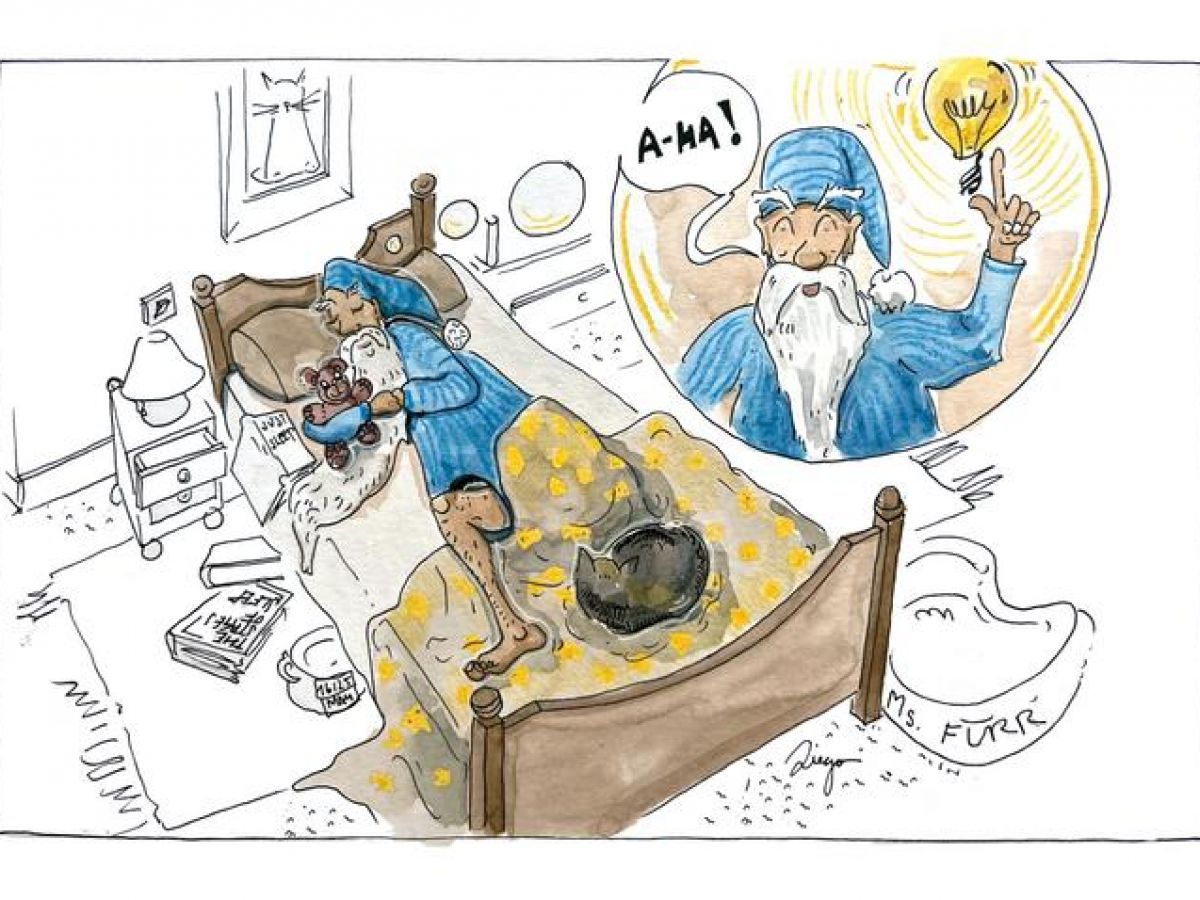It is often said that sleep brings counsel. A team from the University of Hamburg (Germany) attempted to understand at what point in sleep this occurs. To do this, the scientists studied 90 volunteers who were given a complex exercise before and after a nap. Their results, published on June 26, 2025, in the journal PLOS Biology, establish a link between a phase of sleep and the sudden illumination allowing the resolution of a problem.
A visual experience
During the experiment, the 90 participants had to respond to a series of visual stimuli: colored dots (orange or purple) moving across a screen. The dots appeared and disappeared randomly, while moving in one of four orthogonal directions: up, down, left, or right. This setup is called a “random dot kinematogram,” of which here is one video exampleThe subjects gradually learned to press a button according to the perceived direction of movement. This became particularly difficult when the dots were “noisy,” meaning their appearance was very random.
Starting with the fourth series of trials, a secret rule was added: the color of the dots provided valuable information about the correct answer, allowing participants to guess the direction even when the movement was difficult to discern. This rule was never communicated to the participants. Only intuition, or spontaneous awareness, could allow them to spot this trick and thus significantly improve their performance.
After this fourth block, the volunteers were asked to take a 20-minute nap. Their brain activity was then monitored by a 64-electrode electroencephalogram (EEG). The participants then resumed the exercise for five more rounds of trials, still without knowing the hidden rule.
Read alsoBlue light from screens does not affect sleep
A nap to solve the problem
Then, by analyzing performance on the most difficult trials (with very noisy points), the scientists were able to identify moments when participants had a sudden “illumination.” That is, when they understood the help provided by the color and improved their results. During the first three series, the success rate reached 92 % on the easy trials, but fell to 56 % for the difficult ones. Thus, any sudden improvement in the latter was a sign that the implicit rule had been discovered. The results are explicit: 70.6 % of the participants experienced this moment of lucidity after the nap.
The team went further, using EEG data to link the discovery of the implicit rule to the sleep phase (see box below) reached during the break. Their analyses revealed that there was indeed a correlation: only 55.5 % of the participants who remained awake had this “stroke of genius.” This rate rose to 63.6 % among those who reached phase N1, and peaked at 85.7 % for subjects who entered phase N2, slow-wave sleep. By comparison, in a previous study Using the same task without a 20-minute break, only 49.6% of participants found the hidden rule.
OUR sleep is divided into several phases, characterized by the type of brain waves measured by the EEG. The first is phase N1, or light sleep, corresponding to the transition from wakefulness to sleep. The next is N2, slow-wave sleep, where muscle activity decreases. Next comes N3, deep sleep, and finally REM sleep, the dream phase, where the brain is very active but the body is paralyzed. These phases follow one another in cycles of approximately 90 minutes, several times a night.
Read alsoPODCAST. Sixth Science, Episode 153: How to Take Control of Your Dreams
Brain rest as an asset in learning
To explain these results, scientists draw on the theory of synaptic homeostasis: the intensity of activation of synapses, the connections between neurons, is downregulated during sleep. But this decrease in activity doesn't occur randomly; it's based on synaptic activity during waking hours.
“The most highly activated synapses in the waking state are preserved and weaker activations are reduced, summarizes Anika Löwe to Science and Future, a researcher at the University of Hamburg who conducted the study. This could help extract the essential, relevant information from the material learned.”
Read alsoThe impact of sleep on the immune system
This study shows that sleep doesn't just rest us: it actively contributes to the reorganization of our thoughts, facilitating problem-solving and the emergence of new ideas. In short: sleep a little, think better.

